fifty-seven: a river in a time of dryness / you fight the long defeat
(Note — sending this a few days later than scheduled, but truly, I felt like 2,000 words of ruminating on politics and personhood and then dropping more newsletter on you on the scheduled Tuesday was a tad intense? So, y’know, late in service of taking a breath. — LB)
A double-barrelled title this month, to [Freud] best illustrate the juxtaposition that is November in the Anthropocene [/Freud]. I have a poem-in-progress which plays with titling like this, putting two sticks together for a spark even before the poem starts; it’s one of the pieces which are still cleverer than I am, and so I check on it every few months, to see if I’ve caught up its backtrail. It’s never as bad as I think (I read it at Draft last weekend to see where the wrong turns were), and I’m never as good as it deserves. We continue to lie in wait for each other.
In this case: The first culled from U2 because it’s the kind of song that’s played enough that the edges wore off, that you think you know its contours, and then this set of metaphors just flowers through the middle. Yes, my dude, that is the poetical detail we were looking for.
The second? From public health expert Paul Farmer, as quoted in a wonderful and sobering XOXO talk from Ed Yong I watched last month. (And for the people who did the insert edition; this is the link and the title bit I meant.) If you have half an hour and need to steep yourself gently in integrity, you’ll find it in there, but the context is that — said in the context of public health initiatives — being on a losing trajectory is insufficient reason to give up. Everything he says about handling public view and parasociality and keeping yourself in yourself through immense weirdness and actual, reciprocating community over the long view of a problem was — exactly it. The day you’re living in each morning, and the arc of work and time and possibility beyond it.
And it’s the act of holding those together — not letting one cannibalize the other, not treating one as reaction to the other — that produces the sparks?
I am in some respects very fortunate. Out of instinct or habit, I’ve spent my entire life juggling a lot of interests in a lot of things; holding space in a lot of communities of interest and practice. Worst case: It’s made me something of a dilettante, and when the shit really hits the fan, I can count the number of people close enough to actually see and help me on one hand. When I build solutions out of bits of all of them, I can spend years in a day-to-day situation that’s just legitimately oversubscribed, overcommitted, and overwhelming (yo). Guess who spent last night trying to schedule-wiggle so a really rather important municipal Food Charter consultation, a provincial Fund-the-Arts reception and private member’s bill debate (they won’t, but this is invitational so I should show up), one health care appointment, and any work will fit into the same day. You can only wear so many hats before your head falls off.
But, better case: When I am lost, and my god, if the past few years haven’t been the apotheosis of lost nothing ever could be? I have fistfuls of places I can crawl toward, and be taking myself reliably home. Hold ‘em together, and you have habitat.
It makes the moments where they converge that much more exquisite. One of suchsame, near the end of the month: notetaking in the closing stages of a climate poetry collection being read for review (see below), in pajamas but at least fresh clean ones, “Three Lions” on the speakers/in my head for some reason (I don’t even like football), pasta and homemade August-canned tomato sauce on the stove smelling like summer, so dark outside, a food security paper overdue and on my mind, bad chocolate at the ready because I know it’s reliably celiac-safe, and an hour to go until the award ceremony for the three-or-four academic awards and scholarships that got me to the end of the year so I could slip off author for a second, and slip on organizer/student, but not have to change register too much in the process.
I get moments: where it all integrates; where if I described them, I wouldn’t feel like, for once, I was leaving too much crucial out.
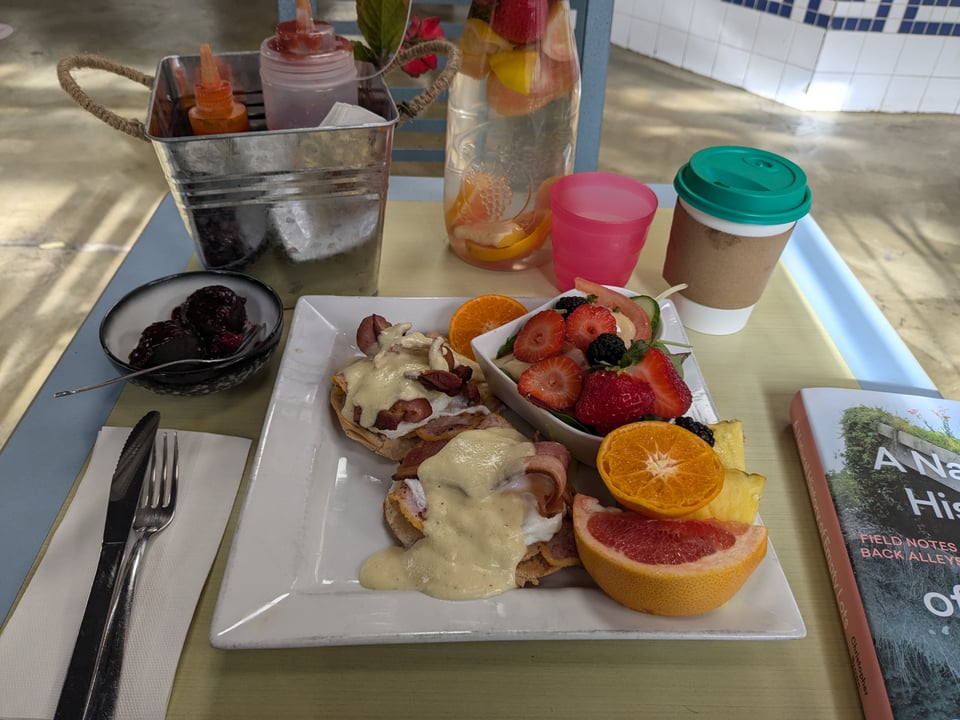
art! in the place where you live
The Toronto Biennial of Art was on this month — it was fabulous last time, lots of stuff on climate and water that’s still mentally with me in a good way — and I took myself around to a few workshops and gallery installations last week just to make sure I didn’t miss them (staggered site closing dates).
The theming this year was around cultural stories, and some of what dies on the page when it’s just words rounded out into depth and beauty installed and silent, working implication. Luckily, Charles Campbell’s piece is going to be there until March, because I knew inside about two minutes I’m going to have to hang out with this one and talk slow and quiet. Yes, it’s about the Atlantic Passage slave trade. The words on the page obviate the soundscape, water and murmuring voices: that all around you is the uncompartmentalizable fact of the sea.
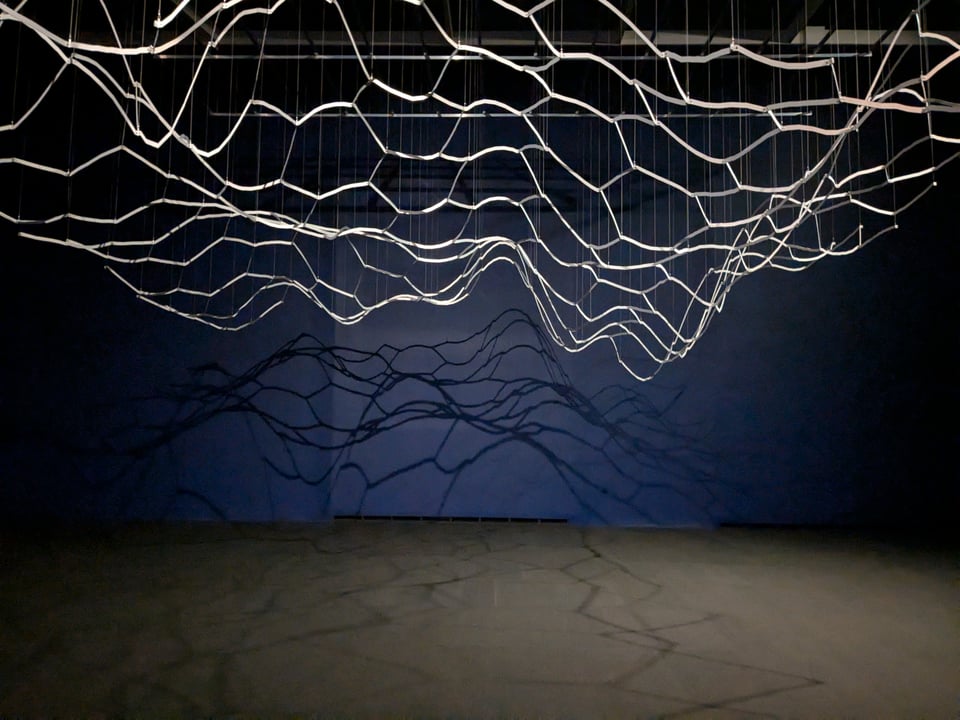
I got lucky in that some of the host sites (Power Plant Gallery, above) had Biennial exhibits next to their own installations, and got to catch this on its last day: a set of living sculptures grown entirely from algae.
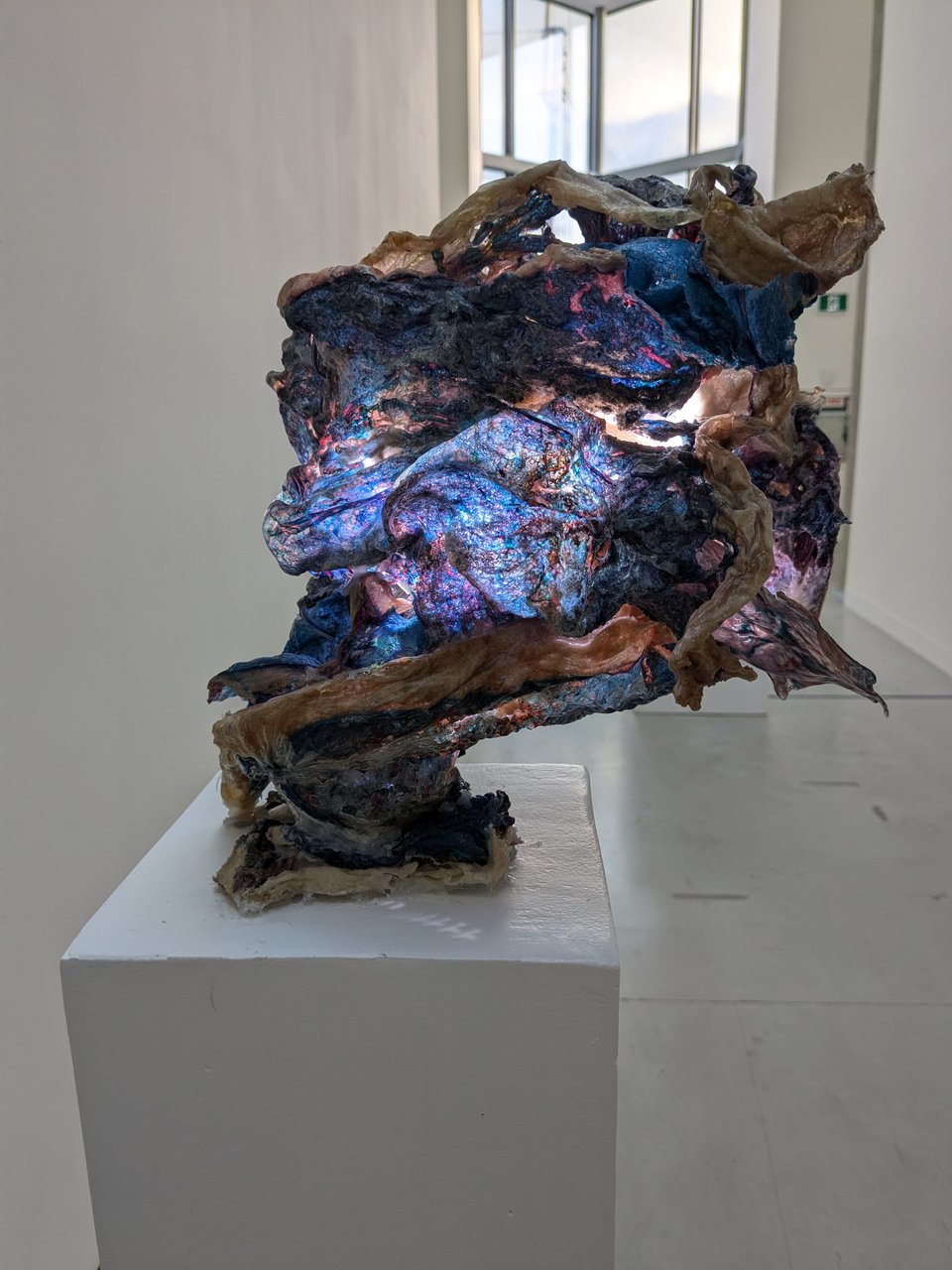
Also did an unscheduled gallery visit with a few community garden friends (we’d had brunch, we were wandering about, it was cold) and so caught a few pieces at OCAD. I don’t think I’ve nosed in on the student gallery in years, since friends of mine were going there and I went to their graduation shows, which felt — surprisingly glamorous at 19 or 20?
And: It wasn’t bad at all? We found two pieces we all really liked (didn’t photograph, alas), did a little collective puttering, and I found out one of said friends, who I’ve mostly hung out with in context of worm bins and best organization for greenhouses and systems for farmers’ market access, used to docent at the AGO, has a lot of informed opinions on Belle Epoque painting, and got into it off the same Matisse in the 1994 Barnes Collection tour, which every school group in the city must have been dragged through that year.
I rarely bring my art-history, scholarly, analytical self to the garden. It’s not the right headspace for immersing yourself in growing things, and in that space I’m a learner. So that moment of wait, yeah? The one with the red headscarf, right? was so fucking delightful. It’s gorgeous when other people are uncompartmentalizable with you. 🥰
savoir
Alongside, this was an interruptive but really generative November in the foul rag-and-bone shop of learning stuff in an attempt to grow big enough to properly do the work.
Over the first week of November, attended two little conferencelets: a day-and-a-half workshop on global and local provisioning at University of Toronto (how beer moved colonial economies, domestic gardens in early modern South Asia, modern local Toronto food systems, opa) at the beginning of the week, and the North American Fruit Explorers’ annual hybrid conference at the end of it. Which covered things like growing fruit trees in tiny spaces, grape varietal crossbreeding, no-till orchards. Together, they made for a nice slide from the historical-and-systemic to the practical-and-instantiated.
The first put out some interesting thoughts about the built form of supermarkets, the ligature marks of old forms of supply chain on current food resource flows, and an intriguing bit of information about how wholesaling works that I’m saving for a few potential applications. They dovetailed really nicely with a lil’ seminar at the end of the month on supply and quality infrastructure for school food programs in Europe, which is relevant now that there’s going to be a proper one in Canada and not just the hodgepodge of meh that’s existed beforehand.
It’s a little obvious, but together a lot of reminders that — the thing with grassroots infrastructure design is that the friction is inherent; not just because putting together new routes to things is worky, but you’re coming up the inherent insecurity of extant systems about their market share? They don’t see hybridized alternatives, they see survival. It took me back to spring and Astra Taylor and scarcity mindsets, hearing about how wholesalers at the Ontario Food Terminal are hard to study because most of them would rather die than talk about their suppliers, and EU competition laws put in to prevent certain kinds of bad actorship also make sourcing regional-and-local produce for a school lunch program that much harder. Everyone’s so scared that there isn’t enough.
This reflected out into coursework, which is intersecting current social conditions in some thematic ways:
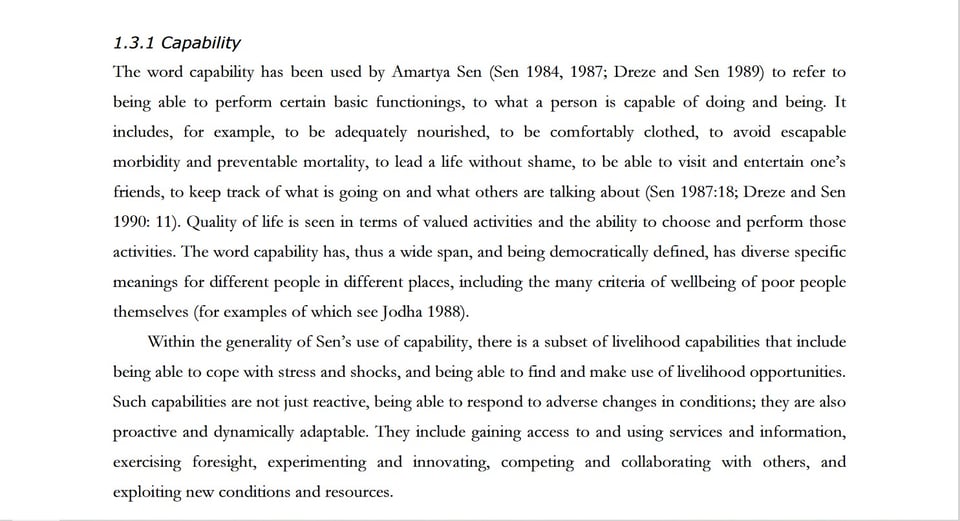
I sat with this one in my mouth for a while like a conceptual gobstopper, thinking about how many of these points have been conceded in the last few years, why, and how that intersects with a habit of helplessness as almost an identity (yes, apparently I’m still thinking about the reification of passivity after all, turns out I fibbed).
There might be a book in this. I have five books there were a book in, partway finished, and no time. How to have more things that have a book in them? (Make time. Bend time.)
faire
It also turned into a legitimately busy month for community stuff: The kind where one meeting said, hey, let’s go to this other consultation next week because the policy priority intersects, and I had already signed up. Three weeks prior. 💅
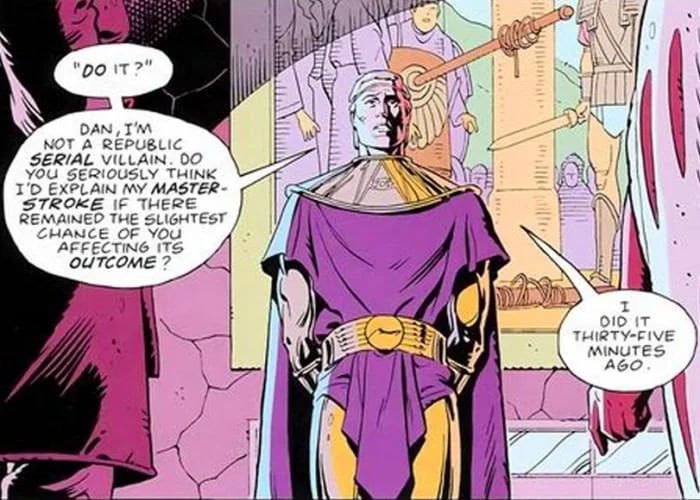
First stop! As is becoming a habit now that they’re hybrid consultations and I can do it in my soft pants, I attended the municipal pre-budget situation at the end of October.
I love going to Budget, because it is a stop on the natural migratory route of Good Toronto™ and I never leave a consultation without the glow of actual community care upon my skin. Everyone there showed up for our shared home. It’s frequently such a good scene.
I never arrive meaning to be the person who’s there to bag on the police, but then you look at the budget allocations and how massive their share is, and inevitably I’m talking about how an ounce of functioning community services is worth a pound of enforcement because are you kidding, a billion dollars? This year, I hung that whole thing on social trust, what’s going on on the ground in my weirdo neighbourhood versus what people assume is going on, and how a lot of the funding to things like community centres maybe isn’t flowing to the people on the front line doing all the work. And that police money could really not have to happen if the upstream situations were working. Build social trust.
I know I have scored an advocacy win when the City staff in the room and the facilitator grab my language and propagate it through the group, and then into the full-attendance summary. Funding things that build social trust. Those are my words for this year’s budget. Like any copywriter, I am now sitting back hands rubbed together, slavering in a dark corner, to see if they come up in anything official. Heh heh heh etc. heh. It was a good meeting.
On a more hands-on basis, had back-to-back meetings about a bike lane rally (the foolish! provincial government wants to rip ours out for reasons that have too much backstory for this space) and a lobby effort to get some urban agriculture policy infrastructure funded at the City so life don’t have to be so hard.
I also have (as above) somehow talked my way into an agencies and grassroots projects consultation on the city’s upcoming Food Charter update. Because, um, technically I am co-organizer of a grassroots food security project and actively consulting on two more. Which I know intellectually but then sometimes a policy thing comes along and I’m like riiiiiight, no shit, these aren’t just side projects to other people. Long-Term Waste Strategy is the week after. These things connect. It’s all about connecting them.
It’s weird to see that I’ve osmosed some awareness of the interactions between staff and Council cultures at the City, how a budget cycle inflects when you should do things, and pinpointing when you bring in certain kinds of advocacy for best caramelization. You don’t feel like you’ve been following Council for fifteen years or really doing much of anything concentrated, and whoops, there you go. 😁
There was a nice moment earlier this month, sending in my updated bio for the next Reckoning issue (more on that down in the things to read section) and Michael said, hey, happy for you that you get to put community organizer in your bio now. And yeah, at this point I think that might not be so aspirational anymore. Get in, losers, we’re making social infrastructure.
(I like aspirational as a word, actually. Aspirare, right? The breath you aim to take.)
ecrire
Is this bit of the pie suffering right now? On the surface, yeah; if I’m generous to myself about the bellows of process (aspirare) I reevaluate. The Things We Know About Writing document (longstanding, secret, safe) got two new entries this month, which is large, we don’t bust that out for little things; I am still filling out rooms and hallways in last month’s long, wandering project, and sprinkled in a few thoughts here, a few there on short stories, poems; am increasingly sure the backburnered novel draft I read through all night as per the election supplement is now workable. I might be stepping back, studying the painting in the moment: hm, where does the brush go?
Nothing in progress really wants to be talked about: It snarls at me a little if I push. This doesn’t make newsletter writing a simple act but hey, there it be.
things read
At this point I fess up that I still can’t read right now. I’m on ten or twelve books on the year, an all-time low; I’ve been tracking for twenty years, and this is the gutter.
It’ll be handled in a future published review, but I did wrap up Kim Trainor’s A blueprint for survival this month for a literary journal; it’s a marvelous collection on every level. And wanted to share here one thing that didn’t make it into the draft: That she did a list poem circling around climate pressures and strategies structured like a dinner conversation with a friend over a pot of dal, and the rhythm of it, the back-and-forth workings — I had to stop for a bit, because I missed society terribly. When we talked about things bigger than ourselves in tones other than trauma and intimidation, and listened to each other in ways that weren’t scanning like autocomplete for threats. It made me miss the world.
It is a very good book. I would go so far as to say vital if you’re actively thinking about the pragmatics of solarpunk, the actionables. And I will link the proper review when it’s available, because that goes significantly into why, without ever hitting completion. I could write a thesis on these poems.
things to read
A shockingly full category this month!
A new, brief review in Rewilding Magazine this past week: Christopher Brown’s A Natural History of Empty Lots: Field Notes from Urban Edgelands, Back Alleys, and Other Wild Places. It’s a capsule for their recommended reading section, but there’s a lot I could have said here with a little more wordcount. Brown can be circuitous, a little didactic sometimes — the book shows its roots as shorter posts for his Field Notes newsletter — but it absolutely springs into focus when he’s layering the same curiosity-driven, meditative, speculative mindset onto myth, physical spaces, the lives of animals, and social relations — and through that praxis connecting them. Ultimately it’s a book mostly about a lens, and that alone is worth the visit. I lent it to my CSA farmer when I was done.
I’ve also placed a poem in 2025’s issue of Reckoning: “Biologists say it will take at least a generation for the river to recover (Klamath River hymn)”. This was drawn from a 2023 article about the Klamath River dam removals and is my first attempt to write poetry from the epistemics and subjectivity of a river, where concepts echo and recur and eddy in circles and directionality is a very specific enterprise. (Think like a river was on the draft very late into the game.) It has structural acrobatics and fish. 🐟 Out sometime in the first half of 2025!
And: Two poems will be in the next issue of Qwerty Magazine, the University of New Brunswick’s in-house journal — the No! Issue, themed around refutations and refusals. They’re both gentler stuff for that theme: “the silent treatment” is a lil’ snip of praxis, and “he says write about death a normal amount” a formal sonnet that is — okay, it’s very much pandemic poetry. But a soupcon of structure, a little struggle, I hope some grace. Apparently all my ways of saying no to things are saying yes to something other; she does attempt to at all times, strengthen the brand. These are in the Winter 2025 issue: probably January.
There’s one more I don’t have the go to announce yet, but will probably by next issue. You could have been forgiven, from January to September, for thinking I basically don’t have a literary career anymore. Turns out it’s just apparently bundled. Keep going even if it feels like losing, turns out.
and then it will be the holidays
I’m already prepping up, because I think I’m already Over It™. Put in the liquor order, lining up small holiday gifts, scheduling hardcore social time, December cannot December itself fast enough. Because sometimes you also just don’t keep going and just do water, indefinite.
See you in December for the finale del annum (haven’t decided yet if pre-Christmas or after). Stay thirsty, my friends.